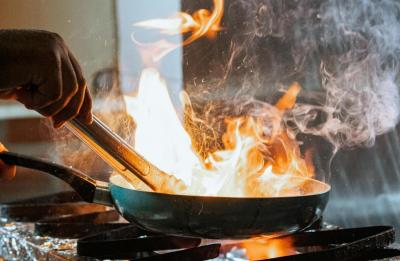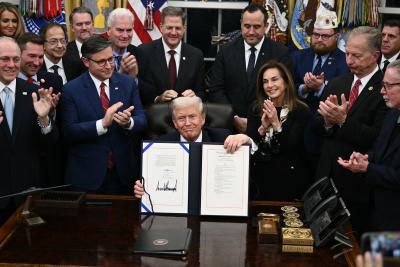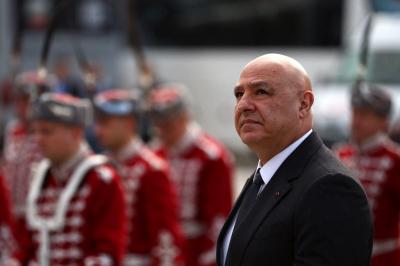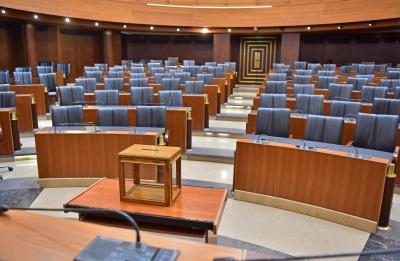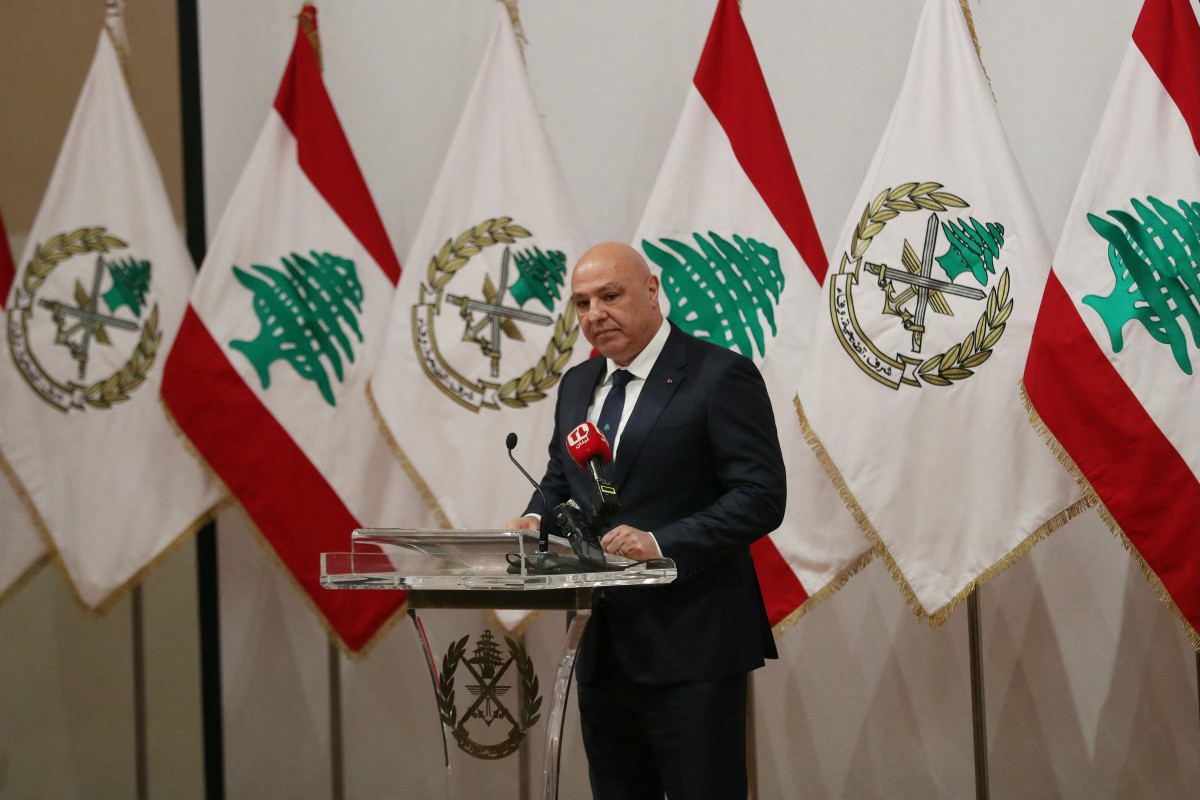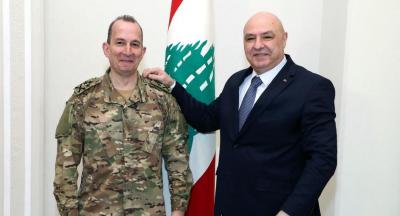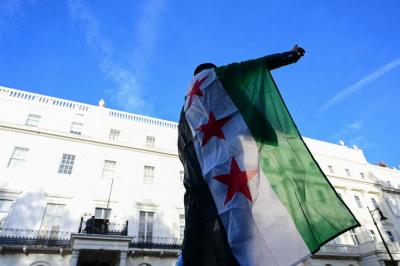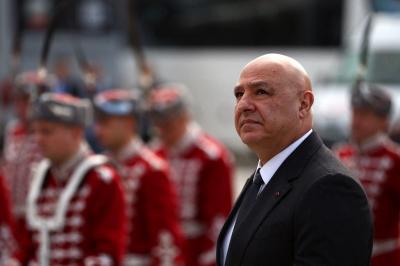The address delivered by President Joseph Aoun on Army Day outshone his inaugural speech. If his oath of office outlined a full presidential program, the Army Day address carried decisive national dimensions.
Aoun’s remarks came in the wake of a speech by "Hezbollah" Deputy Secretary-General Sheikh Naim Qassem, who categorically rejected surrendering the party’s weapons except to the State — and only within a dialogue framework defined by "Hezbollah" itself.
Seizing the initiative, Aoun sketched a precise portrait of the domestic landscape, linking "Hezbollah"’s weapons to the army’s role. Between the lines, he made clear that as president of the republic and commander-in-chief of the armed forces, he is the one who defines the course of the next stage. By doing so, he reclaimed the initiative on the weapons issue, placing it within the framework set by the State and the constitutional institutions — not one dictated by "Hezbollah".
While addressing the weapons question, and on the eve of a cabinet session, Aoun also defused a potential governmental crisis, speaking of the government’s role and powers, praising its ministers, and reaffirming their importance in this sensitive period.
The question of "Hezbollah" disarming remains one of the most complex political and security challenges in Lebanon and the region, intertwined with national security, internal political balances, and regional as well as international conflicts. It has long been the subject of heated domestic debate and growing foreign pressure, particularly from the United States and European countries, as part of efforts to enforce the principle of “exclusive State control of arms.”
What Guarantees Are Needed?
"Hezbollah" leaders say they do not reject the principle of disarmament, but they tie any such move to a set of guarantees related to Lebanon’s security, the security of the Shiite community, the balance of power within the Lebanese State, and the preservation of what they describe as deterrent capabilities against Israel.
These guarantees include:
- Assurances of an end to Israeli attacks on Lebanon, particularly in the south, and against "Hezbollah"’s members, leaders, and facilities.
- Israel’s withdrawal from Lebanese territory it still occupies (the five border points) and final border demarcation.
- Release of Lebanese prisoners held in Israel as part of any comprehensive settlement.
- Guarantees for reconstruction and compensation for Lebanon, especially the south, Bekaa, and southern Beirut suburbs.
- A comprehensive national defense strategy that integrates "Hezbollah"’s weapons into a national system, with assurances of "Hezbollah"’s participation in defense decision-making to preserve its deterrent capacity.
Who Can Offer Such Guarantees?
No single party can provide all these assurances. The potential guarantors are divided among:
- Israel is the party concerned with halting military operations, completing withdrawal, and finalizing border demarcation. But "Hezbollah"’s experience with Israel, according to its leaders, has been negative, as they accuse it of evading or reneging on commitments.
- The United States, the primary sponsor of negotiations and initiatives, with influence over Israel. Yet "Hezbollah" doubts Washington’s ability — or willingness — to exert serious pressure on Tel Aviv to ensure compliance.
- The United Nations or other international bodies, with UNIFIL or the Security Council and its resolutions, such as Resolution 1701, serving as legal and operational frameworks for any potential agreement, especially regarding oversight and binding international guarantees.
- The Lebanese State, which is meant to take responsibility for exclusive control of weapons and guarantee political partnership without marginalizing any national group. However, "Hezbollah" continually points to the “weakness and limited capacity of the State” — without acknowledging the party’s own role in that weakness.
What If Israel Refuses to Provide Guarantees and the U.S. Doesn’t Apply Pressure?
This is the core of the current impasse. Israel insists on continuing its operations against "Hezbollah"’s members and facilities, considering them self-defense. It refuses to offer any binding written or international guarantees that would prevent future operations. The United States views Israeli operations in Lebanon as “limited” or “necessary for security,” continues to support Israel, and rejects any pressure that would restrict its military freedom of action.
In this scenario, "Hezbollah" faces an impossible equation: without serious and credible guarantees from Israel and the United States to cease operations and limit itself to withdrawal, any disarmament deal would, in the eyes of the party and its base, be a dangerous gamble with the security of the Shiite community and Lebanon as a whole.
Guarantees That Could Be Acceptable
With direct Israeli guarantees unlikely and effective American pressure improbable, several options emerge — some theoretical, others partially realistic:
- Expanded international guarantees: Referring the matter to the UN Security Council for a new resolution explicitly obligating Israel to halt any operations within Lebanese territory, with strict and neutral monitoring mechanisms such as an expanded international committee or UN forces with greater executive powers.
- Regional-international collective guarantees: Involving regional powers like France or Russia, or even certain influential Arab States, within a multilateral international agreement. Such a framework could carry more political weight and make it costlier for Israel to breach it.
- Internal political and constitutional guarantees: Reaching a national agreement on a defense strategy that ensures "Hezbollah" and its allies full partnership and sectarian-political protection, especially in security institutions, thereby lowering the risk of internal targeting after disarmament.
Indeed, the president has urged Lebanese parties and groups not to provoke "Hezbollah"’s base, to approach it with understanding, and to acknowledge its concerns, ensuring its role alongside other national components. But "Hezbollah"’s opponents argue they are the ones in need of reassurance and protection from provocation, as they are unarmed while "Hezbollah" maintains a roaming arsenal.
Amid the entrenched positions, what remains hidden are the cards President Aoun may be holding to open closed doors and blocked paths, along with his confidence in his ability to bring together contradictions and achieve the improbable.
Please post your comments on:
[email protected]
 Politics
Politics

